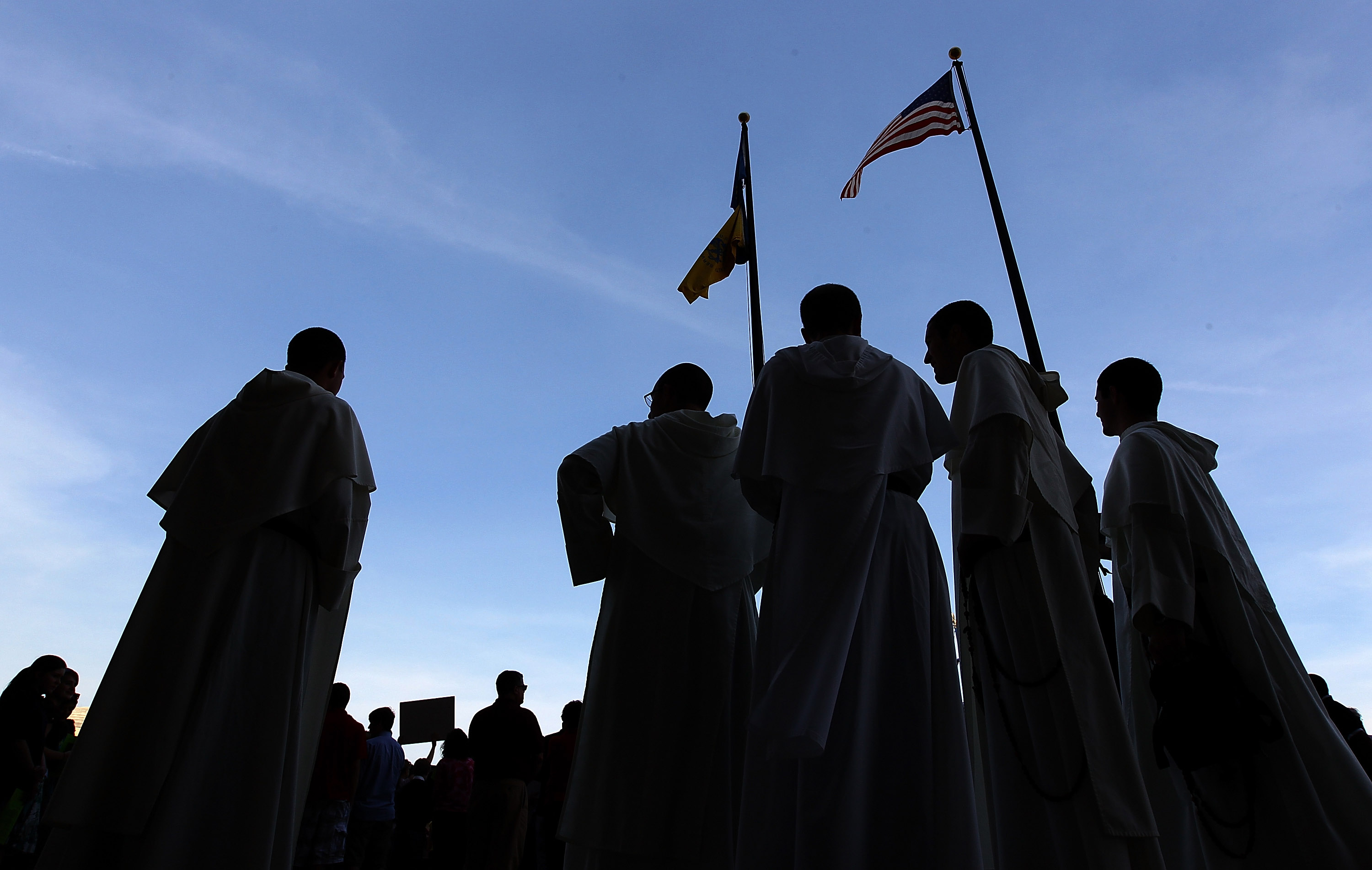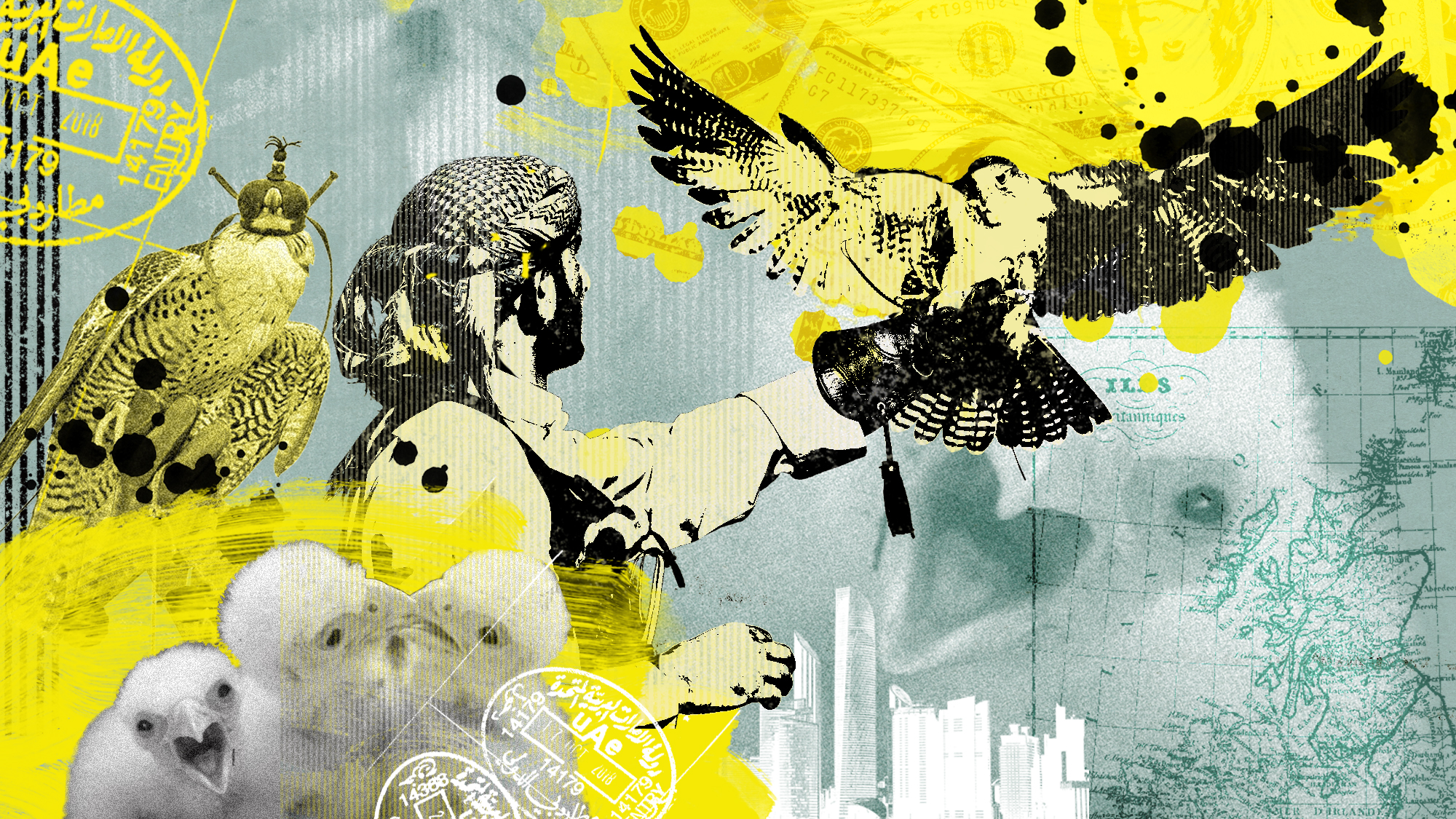Why Catholics are politically homeless
It's impossible to reconcile Catholic orthodoxy with the platforms of either major political party


Things have come a long way for American Catholics since my favorite president, Franklin Delano Roosevelt, quoted papal encyclicals and entertained princes of the church at the White House. For decades now, we Catholics have been politically homeless in this country.
It is impossible to reconcile Catholic orthodoxy — the immortal teachings of the church that have not changed but only developed, like a musical theme, since the death of the last apostle — with the platforms of either major political party. Since at least 1992, when pro-life Democratic Pennsylvania Gov. Bob Casey, Sr., was denied a speaking position at the party's nominating convention, support for abortion rights has been a non-negotiable article of faith for Democratic politicians; the same thing is now true of same-sex marriage and many other sex-and-gender issues.
Meanwhile, the libertarian economics championed by the Republican Party are absolutely at odds with a plain reading of the documents that together comprise the church's social teaching. One of the most straightforward distillations of what the church has to say about political economy appears in St. John XXIII's 1963 papal encyclical Pacem in terris ("Peace on Earth"):
The Week
Escape your echo chamber. Get the facts behind the news, plus analysis from multiple perspectives.

Sign up for The Week's Free Newsletters
From our morning news briefing to a weekly Good News Newsletter, get the best of The Week delivered directly to your inbox.
From our morning news briefing to a weekly Good News Newsletter, get the best of The Week delivered directly to your inbox.
Man has the right to live. He has the right to bodily integrity and to the means necessary for the proper development of life, particularly food, clothing, shelter, medical care, rest, and, finally, the necessary social services. In consequence, he has the right to be looked after in the event of illhealth; disability stemming from his work; widowhood; old age; enforced unemployment; or whenever through no fault of his own he is deprived of the means of livelihood. [Pacem in terris]
You would be hard pressed to name a single Republican politician, Catholic or otherwise, who would unconditionally give assent to these articles. Sen. Rand Paul (R-Ky.) has explicitly dismissed the notion of a right to health care as tantamount to slavery. It is possible to have prudential disagreements about how these rights are to be honored — single-payer, for example, is only one possible (though probably, I think, the most straightforward and workable) response to the question of how to ensure that people receive medical care. But to deny that these rights exist in keeping with libertarian principles about positive liberty is to pretend that the church has no right to inform the consciences of the faithful.
There is a word for that long-established view: Protestantism.
During the long decades of the Cold War, faithful Catholics looking for an answer to the question of how best to provide for the common good compared liberal democratic capitalism in the United States and Western Europe with the communist tyranny of the Soviet Union. The answer to which one did a better job was not hard to arrive at. Finding few allies outside the world of fusionist conservatism, the late Michael Novak and other Catholic neoconservatives who rose to prominence during the long pontificate of St. John Paul II began to equivocate between the norms of the liberal democratic order and the common good itself. For them, a given political order was worthy of approbation only insofar as it was liberal and democratic and capitalist — and in some cases utterly unworthy of it, as in the case of General Franco's confessionally Catholic Spain, because they were not. It did not occur to them that there were other criteria for evaluating commitment to the common good.
This alliance between Catholics and American fusionist conservatives is coming to an end, I think — and soon. Young faithful Catholics who have come of age not during the Cold War but during the Great Recession recognize that tyranny comes in many forms, and that one of them is a corporate logo decked out in rainbow colors whose stock price and rights to exploit the poor of the developed world are backed by a drone army answerable to no one's authority but that of the president. They find themselves asked to choose not between communism and some theoretically just capitalism, but capitalism whose only aims seem to be profits, spoliation of the natural world, alienation of the poor from their dignity, and the promotion of vice.
A free daily email with the biggest news stories of the day – and the best features from TheWeek.com
Corporations are not Catholics' friends, and their bottom lines are none of our concern; abstract principles cherished by those who were Catholics' allies against atheist totalitarianism are not Catholics' principles. Progressives don't actually care about procedure or the text of the Constitution; they care about what they think is right, and they secure it by any means necessary. As Matthew Schmitz put it in a First Things magazine symposium, "Overcoming the lie of Obergefell will require us to speak with courage in the public square — not first in the self-defeating language of liberalism but rather in Christian terms of sin and grace, right and wrong."
This change in emphasis has practical consequences at the levels of institutions and individuals. Young people who have come up in the world of organized social conservatism at places like the Witherspoon Institute and Students for Life will blanche at the idea that fighting abortion is one cause among others, like support for the gold standard. Already writers such as Elizabeth Bruenig and Brandon McGinley are building an audience of millennial Catholic readers who wish Bernie Sanders were pro-life and trade church-inflected Pokémon memes in between rounds of debate concerning the minutiae of Latin prayer books. It's a strange world.
When these two tendencies come to a head, the results can be farcical, like any clash of generations. In a debate with Bruenig, Fr. Robert Sirico, the founder of a Catholic libertarian think tank, recently argued in favor of child labor in Thailand on the grounds that working in a sweat shop is better than being a victim of sex trafficking. (Few things aren't!) Pieces like Joe Carter's recent denunciation of First Things magazine for running a piece on the social thought of Pope Pius XI — imagine a religious magazine edited by Catholics doing that! — and John Zmirak's rants about "angry churchy millennials" who "sneer at the astonishing achievements of free-market capitalism" will probably become more common.
Our political world is being rebuilt. But for now, at least, Catholics still remain homeless.
Matthew Walther is a national correspondent at The Week. His work has also appeared in First Things, The Spectator of London, The Catholic Herald, National Review, and other publications. He is currently writing a biography of the Rev. Montague Summers. He is also a Robert Novak Journalism Fellow.
-
 The elite falcon trade in the Middle East
The elite falcon trade in the Middle EastUnder the Radar Popularity of the birds of prey has been ‘soaring’ despite doubts over the legality of sourcing and concerns for animal welfare
-
 A running list of the international figures Donald Trump has pardoned
A running list of the international figures Donald Trump has pardonedin depth The president has grown bolder in flexing executive clemency powers beyond national borders
-
 Mixed nuts: RFK Jr.’s new nutrition guidelines receive uneven reviews
Mixed nuts: RFK Jr.’s new nutrition guidelines receive uneven reviewsTalking Points The guidelines emphasize red meat and full-fat dairy
-
 The billionaires’ wealth tax: a catastrophe for California?
The billionaires’ wealth tax: a catastrophe for California?Talking Point Peter Thiel and Larry Page preparing to change state residency
-
 Bari Weiss’ ‘60 Minutes’ scandal is about more than one report
Bari Weiss’ ‘60 Minutes’ scandal is about more than one reportIN THE SPOTLIGHT By blocking an approved segment on a controversial prison holding US deportees in El Salvador, the editor-in-chief of CBS News has become the main story
-
 Has Zohran Mamdani shown the Democrats how to win again?
Has Zohran Mamdani shown the Democrats how to win again?Today’s Big Question New York City mayoral election touted as victory for left-wing populists but moderate centrist wins elsewhere present more complex path for Democratic Party
-
 Millions turn out for anti-Trump ‘No Kings’ rallies
Millions turn out for anti-Trump ‘No Kings’ ralliesSpeed Read An estimated 7 million people participated, 2 million more than at the first ‘No Kings’ protest in June
-
 Ghislaine Maxwell: angling for a Trump pardon
Ghislaine Maxwell: angling for a Trump pardonTalking Point Convicted sex trafficker's testimony could shed new light on president's links to Jeffrey Epstein
-
 The last words and final moments of 40 presidents
The last words and final moments of 40 presidentsThe Explainer Some are eloquent quotes worthy of the holders of the highest office in the nation, and others... aren't
-
 The JFK files: the truth at last?
The JFK files: the truth at last?In The Spotlight More than 64,000 previously classified documents relating the 1963 assassination of John F. Kennedy have been released by the Trump administration
-
 'Seriously, not literally': how should the world take Donald Trump?
'Seriously, not literally': how should the world take Donald Trump?Today's big question White House rhetoric and reality look likely to become increasingly blurred
